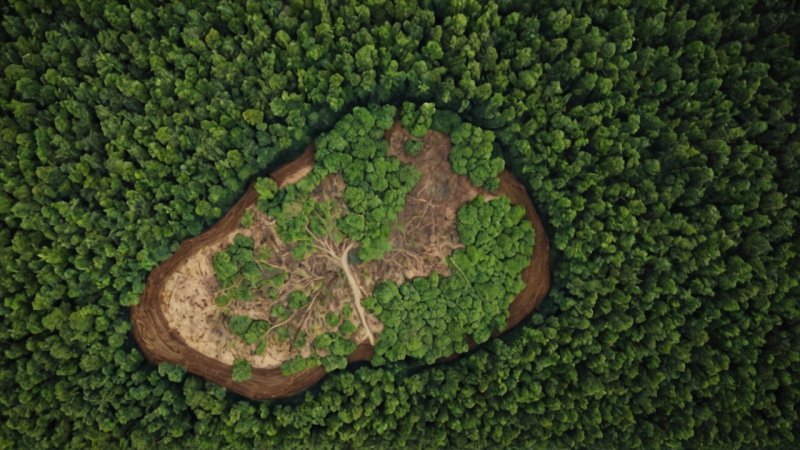Deforestation is one of the most critical environmental challenges facing our planet today. The widespread clearing of forests for agricultural expansion, urban development, and logging has far-reaching consequences for biodiversity, climate stability, and human health. This article aims to shed light on the impact of deforestation on global ecosystems, urging readers to recognize the urgency of this issue and consider ways to contribute to its resolution.
Forests are often referred to as the lungs of our planet. They play an essential role in producing oxygen and absorbing carbon dioxide, which helps mitigate climate change. When forests are destroyed, not only do we lose valuable oxygen-producing trees, but we also release significant amounts of carbon back into the atmosphere, exacerbating the greenhouse effect. The IPCC reports that deforestation contributes to approximately 10-15% of global greenhouse gas emissions, making it a critical factor in the fight against climate change.
Biodiversity is another crucial aspect of forests that is severely impacted by deforestation. Forests are home to an estimated 80% of the world’s terrestrial biodiversity. When these habitats are destroyed, countless species face extinction. This loss of biodiversity can disrupt food chains, destabilize ecosystems, and reduce resilience to environmental changes. For example, the extinction of a single species can have cascading effects on other plants and animals, leading to further losses and imbalances.
The effects of deforestation extend beyond ecological concerns; they also threaten human health and well-being. Forests provide essential resources such as clean water, food, and medicine. Deforestation can lead to water scarcity, soil erosion, and increased vulnerability to natural disasters such as floods and landslides. Communities that depend on forests for their livelihoods are particularly at risk, facing food insecurity and loss of income as a result of degraded land.
Furthermore, deforestation has social implications, particularly for marginalized communities. Indigenous peoples often rely on forests for their cultural identity, subsistence, and livelihoods. When their lands are taken for commercial use, these communities are displaced and stripped of their resources. This leads to conflicts over land rights and exacerbates social inequalities.
To combat deforestation, global cooperation and local action are essential. Governments must implement policies that promote sustainable land-use practices and protect existing forests. Community-driven reforestation initiatives can also play a vital role in restoring degraded landscapes and enhancing biodiversity.
On an individual level, everyone can contribute to the fight against deforestation. Supporting sustainable products, reducing paper consumption, and advocating for policies that protect forests are all meaningful actions. Additionally, raising awareness in local communities about the importance of forests can inspire collective efforts to conserve these vital ecosystems.
In conclusion, the impact of deforestation on global ecosystems is profound and multifaceted. Protecting forests is not merely an environmental concern; it is a matter of social justice, human health, and planetary resilience. By understanding the implications of deforestation and taking action, we can work towards a sustainable future where both people and nature thrive.
How Deforestation Threatens Our Planet's Health
Deforestation poses a significant threat to our planet's health, impacting biodiversity, climate stability, and human well-being.






